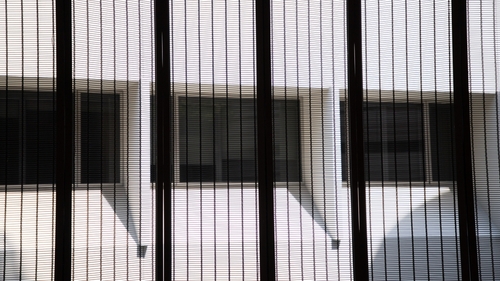
Sliding Windows for HDB Flats
September 30, 2023
Tips for Cleaning and Maintaining Your Glass Windows
November 28, 2023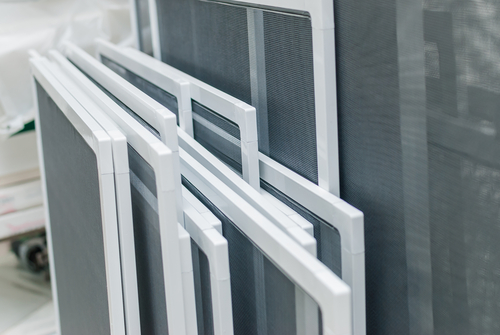
Maintaining Your Window and Door Screens Tips and Tricks
Maintaining Your Window and Door Screens: Tips and Tricks. In the realm of home maintenance, we often focus on the prominent aspects like walls, floors, and furnishings.
However, the often overlooked heroes of our homes are the window and door screens. These seemingly modest components play a vital role in enhancing our daily comfort, security, and well-being.
This comprehensive guide will empower you with the knowledge and techniques needed to maintain your window and door screens effectively, ensuring they remain in top-notch condition.
The Importance of Screen Maintenance
Your window and door screens are your first line of defense against the intrusion of unwanted pests, insects, and debris.
Their maintenance is about preserving the aesthetic appeal of your home and ensuring a comfortable living environment.
Neglecting screen maintenance can lead to various problems, from impaired ventilation to increased security risks.
Before delving into maintenance specifics, let’s understand the fundamental roles of window and door screens.
These screens allow fresh air to flow into your home while keeping insects and pests at bay. They are crucial to a well-ventilated, secure, and comfortable living space.
Properly maintained screens enhance air quality, lower energy consumption, and a pest-free environment.
Moreover, they offer an unobstructed view of the outdoors, allowing you to connect with nature without compromising your comfort.
Why Screen Maintenance Matters
Protection from Insects and Pests
One of the primary functions of screens is to shield your home from insects and pests. Regular screen maintenance prevents tears and holes that can provide entry points for unwanted visitors. With a well-maintained screen, you can enjoy the serenity of your home without fearing uninvited intruders.
Enhancing Air Quality and Ventilation
Screens facilitate fresh air circulation into your living space, improving indoor air quality and reducing the need for artificial cooling. Keeping your screens clean and intact ensures a constant flow of fresh air without any obstructions.
Prolonging the Lifespan of Screens
Effective maintenance not only preserves the comfort and security of your home but also extends the lifespan of your screens. Well-kept screens are less prone to wear and tear, reducing the frequency of replacements.
Types of Window and Door Screens
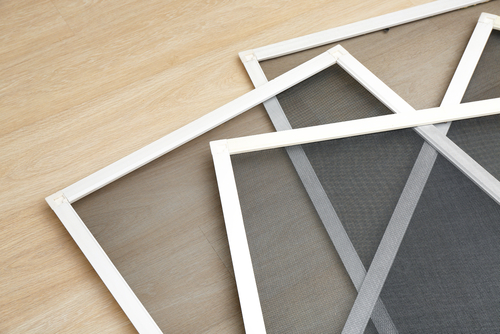
Different Screen Materials
Window and door screens come in various materials, each with its unique features. Common materials include fiberglass and aluminum. Understanding the material of your screens is essential for tailored maintenance.
Retractable vs. Fixed Screens
Retractable screens offer the convenience of hiding when not in use. Fixed screens, on the other hand, are permanent fixtures. Maintaining retractable screens involves lubrication and periodic inspections, while fixed screens require regular cleaning.
Screen Styles
Depending on your specific needs, you can choose from different screen styles, such as traditional mesh screens, solar screens that reduce heat and glare, and pet-resistant screens that withstand the antics of your furry companions.
Regular Cleaning and Dusting
Removing Dust and Debris
Dust and debris can accumulate on screens over time, hindering airflow and visibility. Regular cleaning with a soft brush or vacuum cleaner can eliminate these nuisances.
Tools and Products for Effective Cleaning
Choose cleaning tools and products carefully to avoid damaging your screens. Microfiber cloths, mild detergent, and warm water are often ideal for cleaning screens without causing harm.
Frequency of Cleaning
The frequency of cleaning depends on your environment. Homes in dusty areas may require more frequent cleaning. A general rule of thumb is to inspect your screens monthly and clean them as needed.
Inspecting for Wear and Tear
Identifying Common Issues
Regular inspections are critical for identifying and addressing common issues such as tears, holes, and rust. Detecting these problems early can prevent further damage and the need for costly replacements.
The Importance of Timely Repairs
Timely repairs ensure that minor issues don’t escalate into major problems. Patching up small tears and addressing rust spots can extend the life of your screens.
DIY vs. Professional Repairs
While DIY repairs are possible for minor issues, consulting professionals for extensive damage is advisable. They have the expertise and tools to restore your screens to optimal condition.
Preventing Damage from Pets
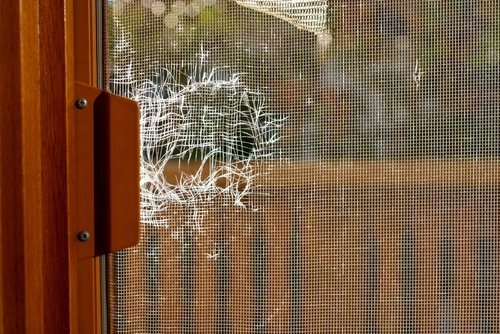
Safeguarding Screens from Pet Scratches
If you have pets, protecting your screens from their curious claws is essential. Consider training your pets to avoid screens or investing in pet-resistant screens that can withstand their playful nature.
Training Tips for Pet Owners
Training your pets to respect screens can go a long way in preventing damage. Positive reinforcement and providing alternative entertainment can discourage them from scratching or pawing at the screens.
Pet-Resistant Screen Options
For pet owners, pet-resistant screens are a worthy investment. These screens are designed to withstand the wear and tear caused by pets and maintain their integrity.
Lubricating Moving Parts
Sliding and Retractable Screens
Proper lubrication of moving parts is essential for sliding and retractable screens to ensure smooth operation. Use silicone-based lubricants to keep these screens functioning effortlessly.
Choosing the Right Lubricants
Selecting the right lubricant is crucial, as some products may cause damage or attract dirt. Silicone-based lubricants are recommended for their durability and non-stick properties.
Scheduling Lubrication
Establish a schedule for lubricating moving parts. Regular maintenance will ensure that your screens operate smoothly without any hiccups.
Replacing Worn-Out Screens
Signs that Replacement Is Necessary
Worn-out screens exhibit signs like large tears, extensive rust, and irreparable damage. If your screens reach this point, it’s time to consider a replacement.
DIY vs. Professional Installation
Deciding between DIY installation and professional assistance depends on your skills and the complexity of the task. DIY replacement is feasible for some, but professional installation guarantees precision and quality.
Selecting the Right Replacement Screens
When choosing replacement screens, consider factors like material, style, and purpose. Tailor your selection to your specific needs and preferences.
Security and Screen Maintenance
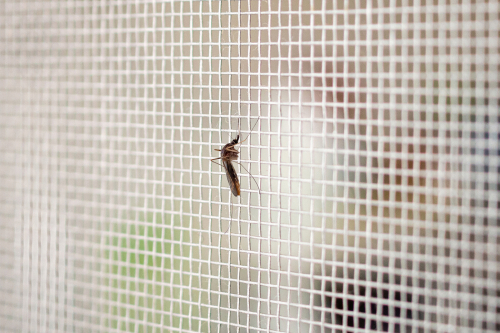
Balancing Security and Functionality
Balancing security and functionality is crucial. Reinforce your screens to ensure they not only serve their primary purpose but also provide an additional layer of security.
Screen Door Locks and Latches
Install secure locks and latches to enhance the safety of your screens. This added security can give you peace of mind, especially in areas prone to break-ins.
Reinforcing Screens for Added Security
Consider reinforcing your screens with security features like shatterproof glass or specialized frames. These measures can deter potential intruders effectively.
Frequently Asked Questions (FAQs)
How often should I clean my window and door screens?
The cleaning frequency depends on your environment, but a monthly inspection is a good starting point.
Can I repair small tears in the screens myself?
Small tears can be DIY-repaired with screen repair kits available in hardware stores.
What are the best practices for cleaning different screen materials?
For fiberglass screens, use a mild detergent and water. Aluminum screens can be cleaned with a mixture of vinegar and water.
How can I prevent my pets from damaging the screens?
Train your pets to avoid screens, and consider pet-resistant screens.
What are the signs that it’s time to replace a window or door screen?
Signs include large tears, extensive rust, or irreparable damage that impairs functionality.
What security measures should I consider when maintaining screens?
Enhance security with robust locks, shatterproof glass, or reinforced frames.
Can I install new screens on my own, or should I hire a professional?
The choice between DIY and professional installation depends on your skills and the complexity of the task.
What are the benefits of using solar or insect-resistant screens?
Solar screens reduce heat and glare, while insect-resistant screens keep pests at bay.
How do I choose the right lubricant for my screen’s moving parts?
Opt for silicone-based lubricants to ensure smooth operation without attracting dirt.
What are the advantages of retractable screens?
Retractable screens offer the convenience of hiding when not in use, providing an unobstructed view.
What steps should I take to maintain screens in a humid climate?
Regular cleaning and inspections are crucial in humid climates to prevent corrosion.
How do I keep screens looking new for years?
Regular maintenance, cleaning, and timely repairs are key to keeping screens in pristine condition.
Maintaining Your Window and Door Screens: Tips and Tricks – Conclusion
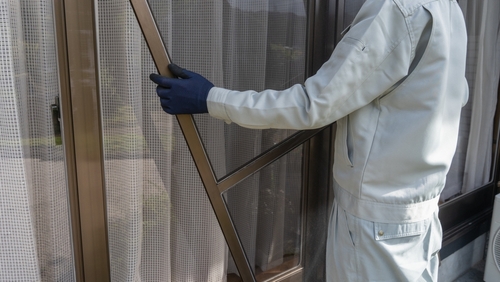
Effective screen maintenance is the key to enjoying long-lasting, functional screens that enhance your home’s comfort and security.
Use the following checklist to maintain your screens effectively:
- Regular cleaning and dusting
- Timely repairs for wear and tear
- Training pets to avoid screen damage
- Lubricating moving parts
- Consideration of replacement when necessary
- Balancing security with functionality
By following the tips and guidelines in this comprehensive guide, you can ensure that your window and door screens remain in optimal condition, providing you with the comfort and security you deserve.
Your well-maintained screens will not only serve their intended purpose but also contribute to a more enjoyable living environment.
Are you seeking professional and reliable window grill installation or window screen installation services in Singapore? Contact us today!

